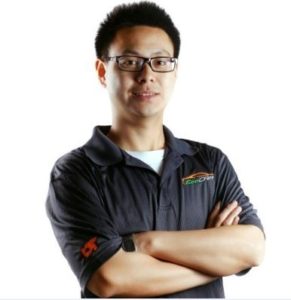Dr. Shiqi (Shawn) Ou 
Postdoctoral Research Associate
Oak Ridge National Lab
Friday, March 24, 2017 2:30-3:30
JDT 410
Abstract:
China has been the world’s largest vehicle market since 2009 and the largest light duty plug-in electric vehicles (PEVs) market since 2015, and the changes of the Chinese vehicle market would impact the auto industry and global energy demands. In order to stimulate the PEVs growth and reduce the fuel consumptions of the conventional light duty vehicles, the Chinese government released the “Provisional Measures on the Cooperate Average Fuel Consumption and New Energy Vehicle Credits (Draft for solicitation of comments)” in September 2016, which enforces the automakers to improve the energy-saving technologies in vehicles or pivot on the new energy vehicles (including PEVs and fuel cell vehicles) to achieve the fuel consumption targets by the government.
This study built the consumer discrete choices model for the Chinese vehicle market, and quantifiably analyzed the potential vehicle market impacts of the fuel prices/fuel consumption technology/ PEV manufacturing cost with consideration the Cooperate Average Fuel Consumption (CAFC) and New Energy Vehicle (NEV) Credits. This seminar is consisting of two parts: 1) investigation of the market adoption of PEVs in China, and introduction of the Chinese CAFC/NEV Credits Standards; 2) the construction of the nested logit model for the Chinese vehicle market and its scenario analysis. This model is developed to answer: 1) whether the Chinese auto industry is able to achieve the fuel consumption goal; 2) what is industry optimal profit with consideration of the CAFC/NEW Credits standards; 3) how the CAFC/NEW Credits standards impact the market shares of light-duty vehicles in China.
Bio:
Dr. Shiqi(Shawn) Ou is a Postdoctoral Research Associate at the Energy and Transportation Science Division of the Oak Ridge National Laboratory. He received his Ph.D. in Mechanical Engineering from the University of Tennessee in 2015. He also received his M.E. and B.S. degrees in Vehicle Engineering from the Dalian University of Technology in 2012 and 2010, respectively. Dr. Ou research interests are transportation/energy systems modeling, consumer choices analysis in the vehicle market, vehicle market projection and policy analysis, advanced vehicle technologies, and energy security.